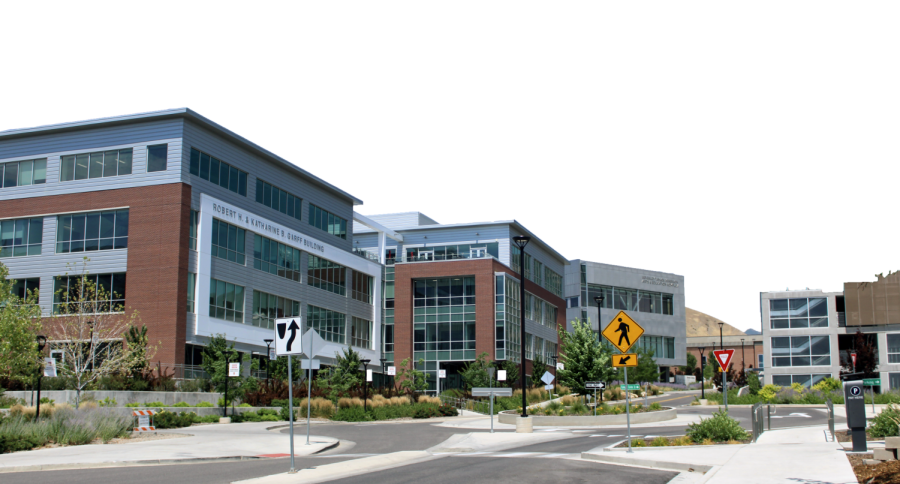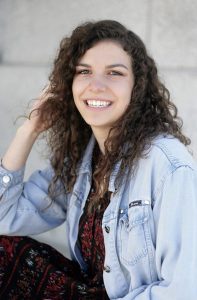U Student and Professor Say Return to Normal is Inaccessible
(Photo by Brooklyn Critchley | The Daily Utah Chronicle)
August 30, 2021
As the University of Utah prepares to return to a mostly in-person experience in fall 2021, some are preparing for a return to normal, while other students are watching as accommodations start to disappear.
Angela Smith, Director of Disability Studies in the School for Cultural and Social Transformation, said disabled students have been asking for accommodations such as more online materials or conducting meetings from home for a while now. Before COVID-19, these requests were denied.
“Then the pandemic happened, and everyone had to stay home, be safe, restrict the spaces in which they were spending time,” she said. “And so, suddenly it was possible.”
Smith explained the frustration felt by people with disabilities when the accommodations they have been asking for were readily available to all during the pandemic, often yielding more successful results for students.
“It does feel a bit like disabled people are seen as a minority and their exclusion is seen as kind of inevitable when in fact it’s not right,” she said. “We could change social structures, we could get rid of barriers and we could make that participation possible.”
While the Center for Disability and Access offers various academic accommodations, such as note-taking services and reduced course loads, Smith said many students can not access CDA services if they do not have healthcare or a diagnosis.
“There are plenty of students with disabilities who don’t get that recognition and that formal support,” Smith said. “So instructors can also be thinking about how to provide a more accessible learning experience and that just translates to greater flexibility in some instances.”
According to Smith, it is also important to recognize how both the online and in-person formats have benefited those with disabilities. “We have a diverse population, and what benefits that population the most is giving as many different kinds of options and ways of succeeding as possible,” she said.
The online format was sometimes more inaccessible, because of a lack of captioning on virtual lectures or a professor’s requirement for students to leave their cameras on during class.
“That kind of rigidity leads to inaccessibility … it’s not like COVID-19 produced this utopia for students with disabilities,” Smith said.
With COVID-19, Smith said there existed a willingness to sacrifice certain people — a willingness entrenched in ableism.
“When initially it was thought this only really affects the elderly and people with underlying conditions, [many people thought that] the rest of us [could] carry on as normal — that’s something that posed a danger to the health and lives of people with disabilities,” Smith said.
When discussing the rationing of medical care, Smith said the worthiness of people’s lives was called into question.
“That was pretty traumatic, I would say, for people with disabilities as well knowing that they might be considered lesser and denied healthcare,” she said. She also said pandemics happen because of connectedness — a connectedness so often ignored out of privilege.
“I think a lot of disability justice work is about recognizing our interconnectedness, recognizing that we need to proceed towards accessibility as a collective and that we need to make space for people who are typically marginalized and let them actually lead the way and tell us what we need,” Smith said.
Emily Kreb, a PhD student in communications and former student of Smith’s, said she is concerned about the U not requiring masks or proof of vaccination upon returning to campus. “Students who are high risk for COVID are really concerned because essentially, we are not being accounted for in these conversations,” she said.
According to Kreb, there are few accessible dorms on campus and social events such as rush and recruitment for Greek life are inaccessible. “People don’t know where they’re going to be going, they don’t know what they’re going to be eating, they don’t know how to prepare for events,” she said.
Smith said the U needs to acknowledge the need for a slower pace, prioritizing people’s health and wellbeing over productivity.
“And so it would be nice if we … operated a little more as a community that is supportive and understanding and I think that ethos could go a long way to making the University more hospitable for everyone,” she said.
Kreb highlighted the various forms of grief experienced by people during the pandemic. For some disabled people, the return to what some view as normal comes with mourning the loss of a world that was made briefly more accessible.
“I know that students have been appreciating the flexibility that the pandemic afforded,” Kreb said. “The return to normal that everyone is kind of pushing towards essentially means returning to inaccessible practices.”









